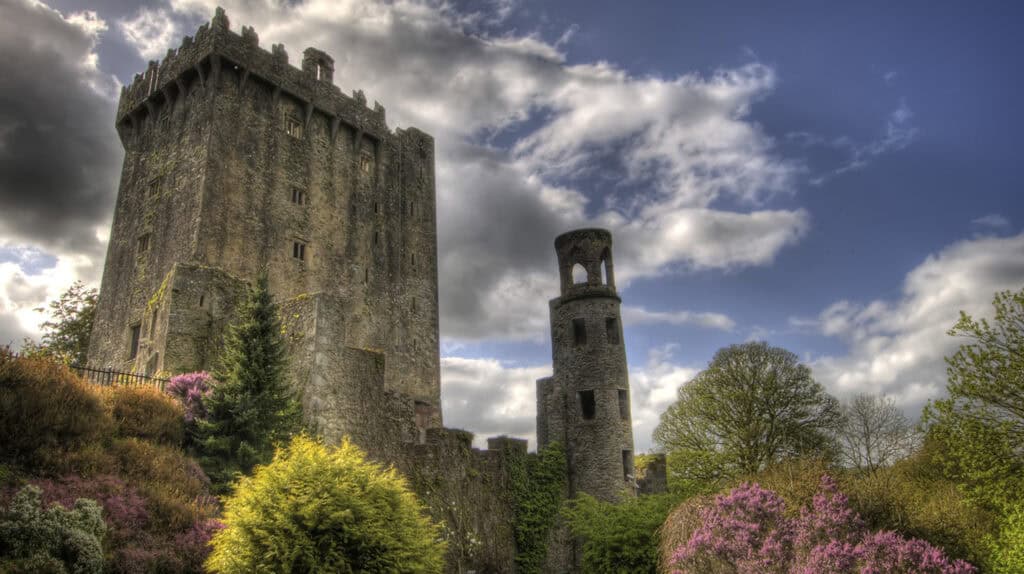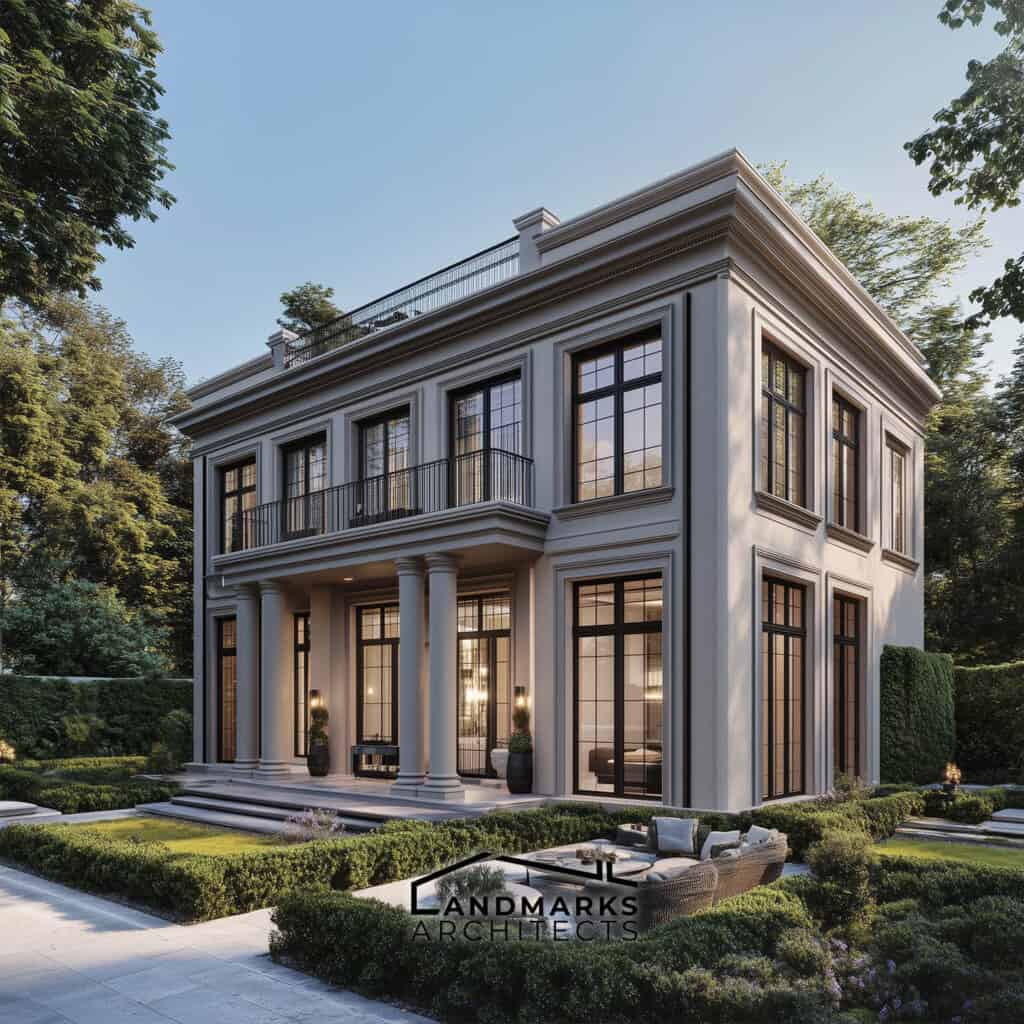
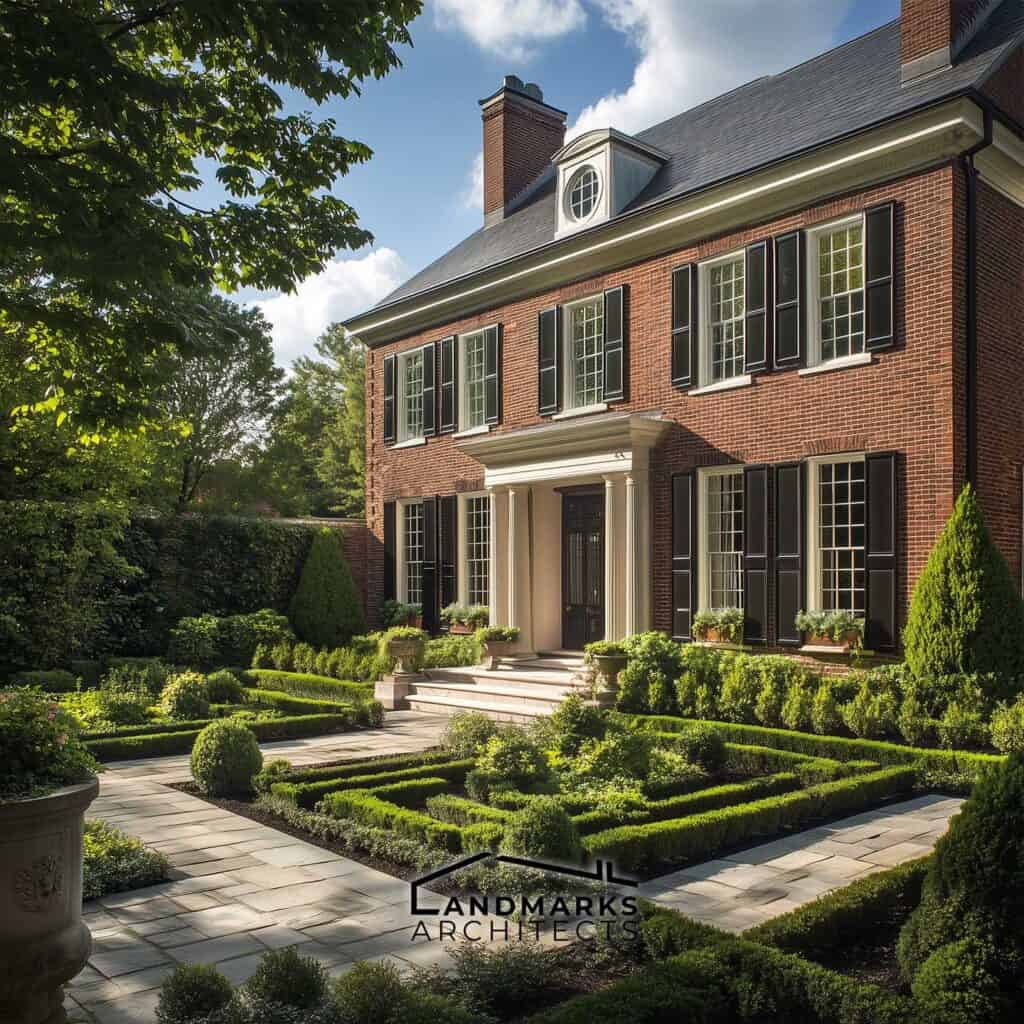
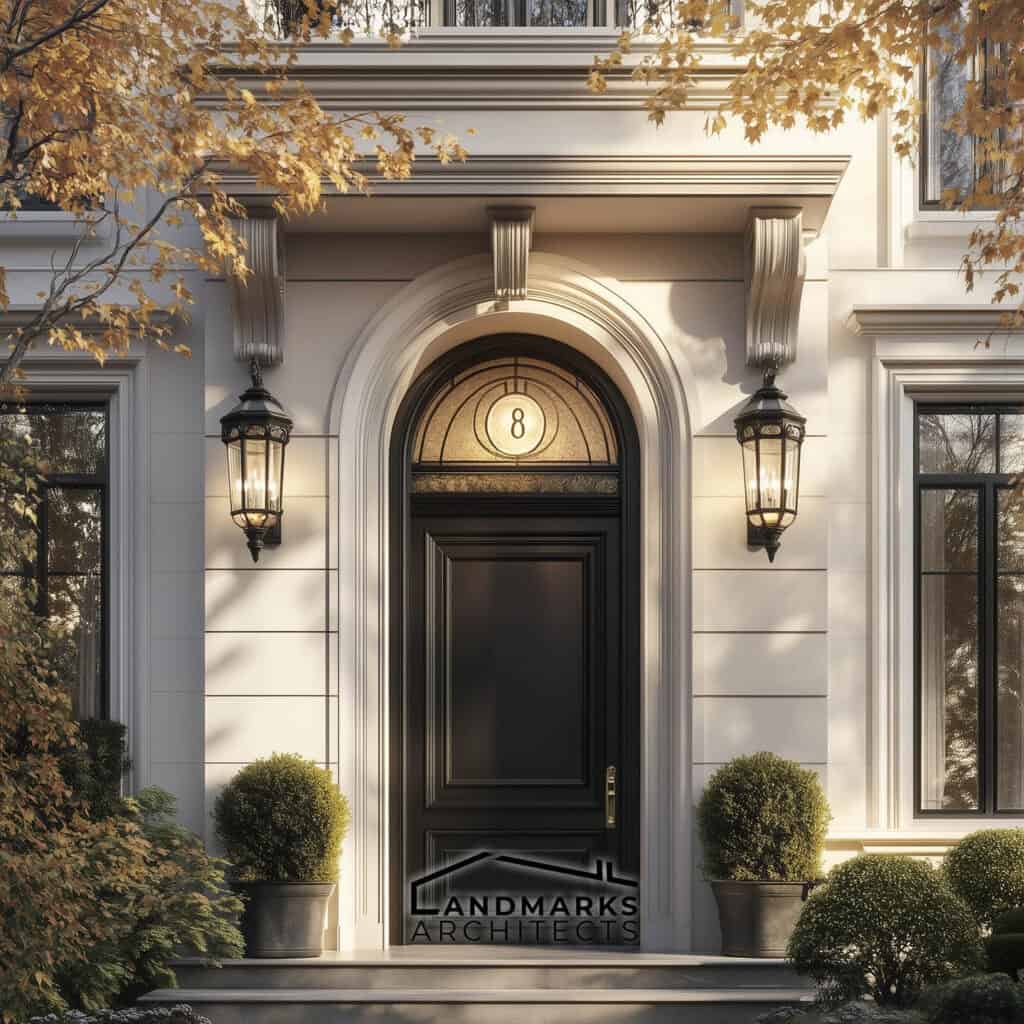
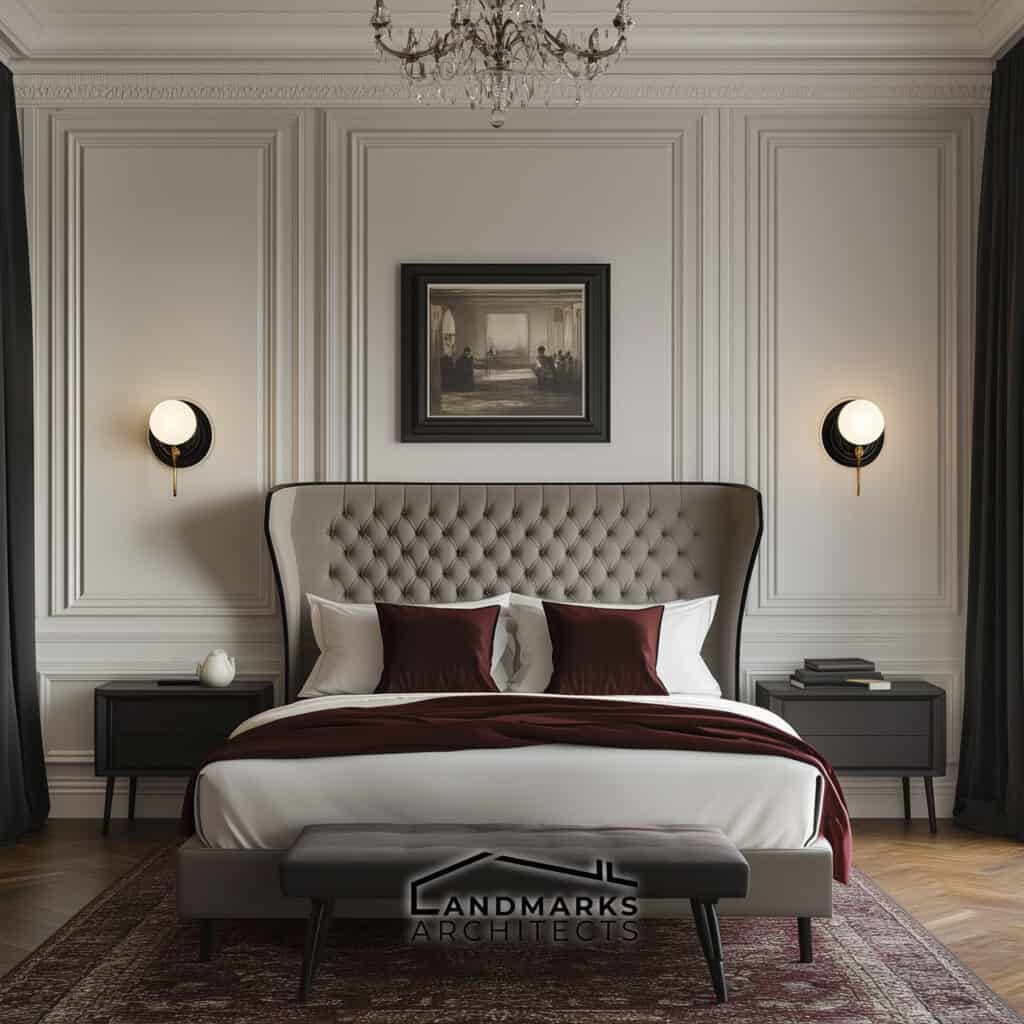
Curious about merging classic elegance with modern design? Modern Georgian Architecture offers a unique blend of timeless charm and contemporary innovation, creating stylish and functional spaces.
As a homeowner or developer, balancing historical grace with modern needs can be challenging. At Landmarks Architect, We’re here to help you achieve this perfect fusion.
In this article, we will explore:
- 10 Key Aspects of Modern Georgian Architecture
- Modern Georgian Homes
Ready to see how classic and contemporary can coexist beautifully? Continue reading to discover how Modern Georgian Architecture can bring your vision to life.
10 Key Aspects of Modern Georgian Architecture
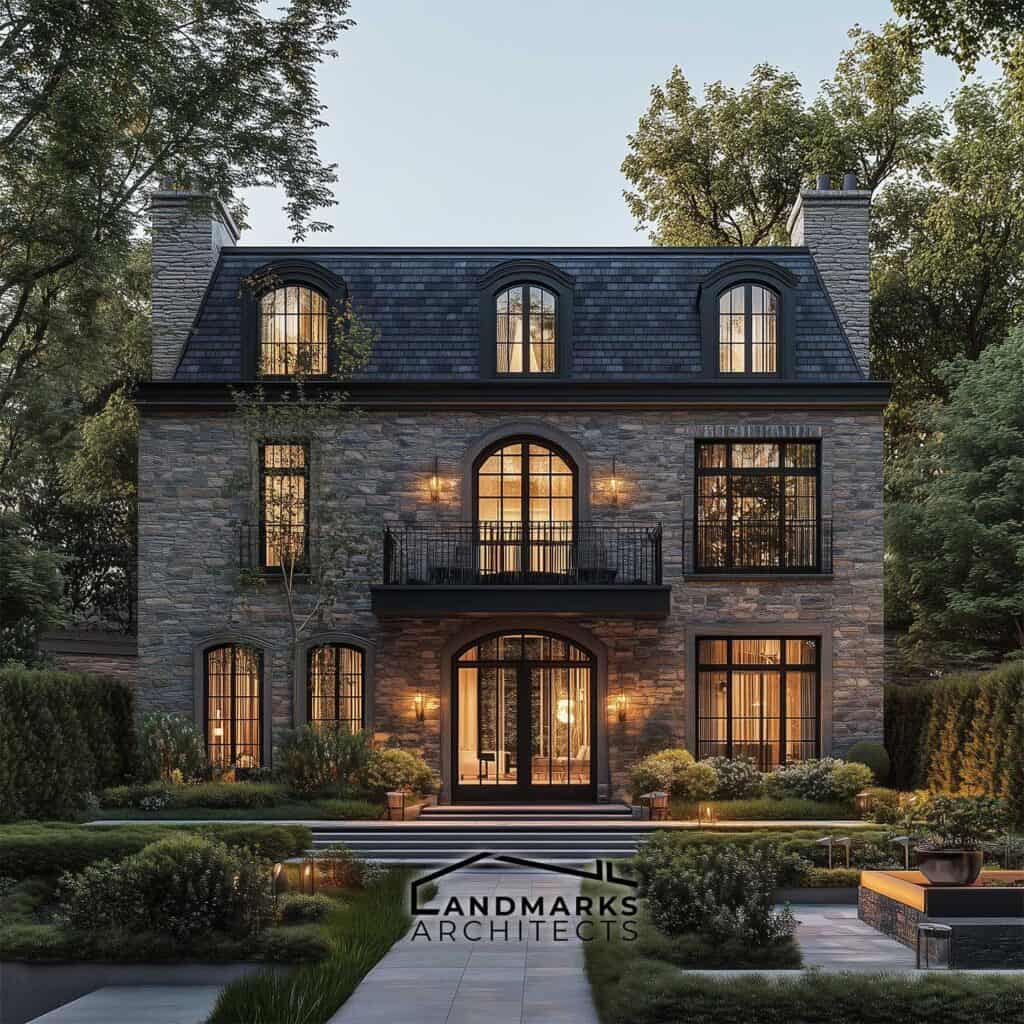
Modern Georgian architecture is one of the various types of architectural styles that blend historical elegance with contemporary design principles. This approach creates homes that are both stylish and functional. The style highlights classical influences, optimal use of materials, and an emphasis on sustainability while promoting an open and interconnected living space.
By incorporating these features, Modern Georgian architecture stands out as a distinct type of architectural style that marries tradition with modern innovation.
1. Classical Influences
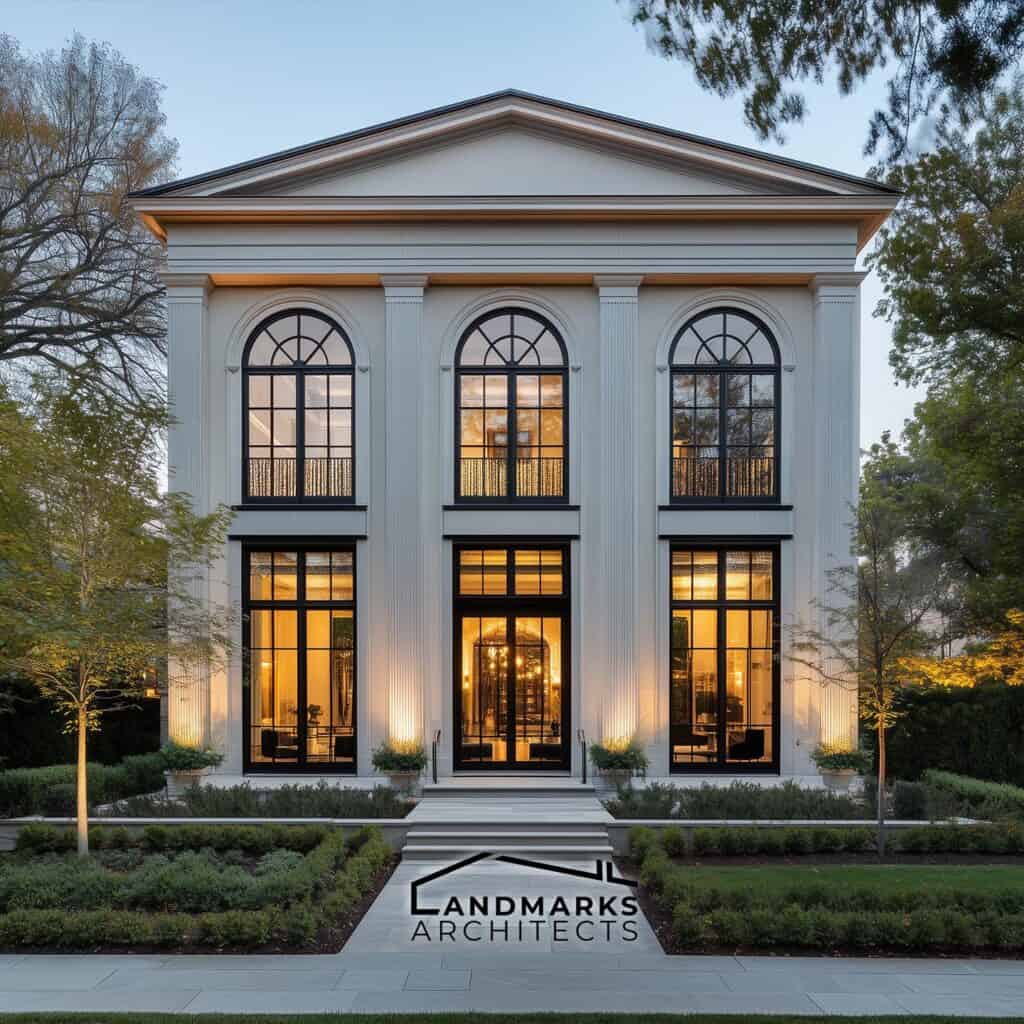
Modern Georgian architecture draws heavily from classical architecture. This influence is evident in the symmetry and proportion that characterize the design. Architectural details often reference the works of renowned figures like Andrea Palladio, emphasizing a harmonious balance.
Many modern Georgian homes feature elements like cornices, pilasters, and decorative moldings that reflect this rich heritage.
2. Materials
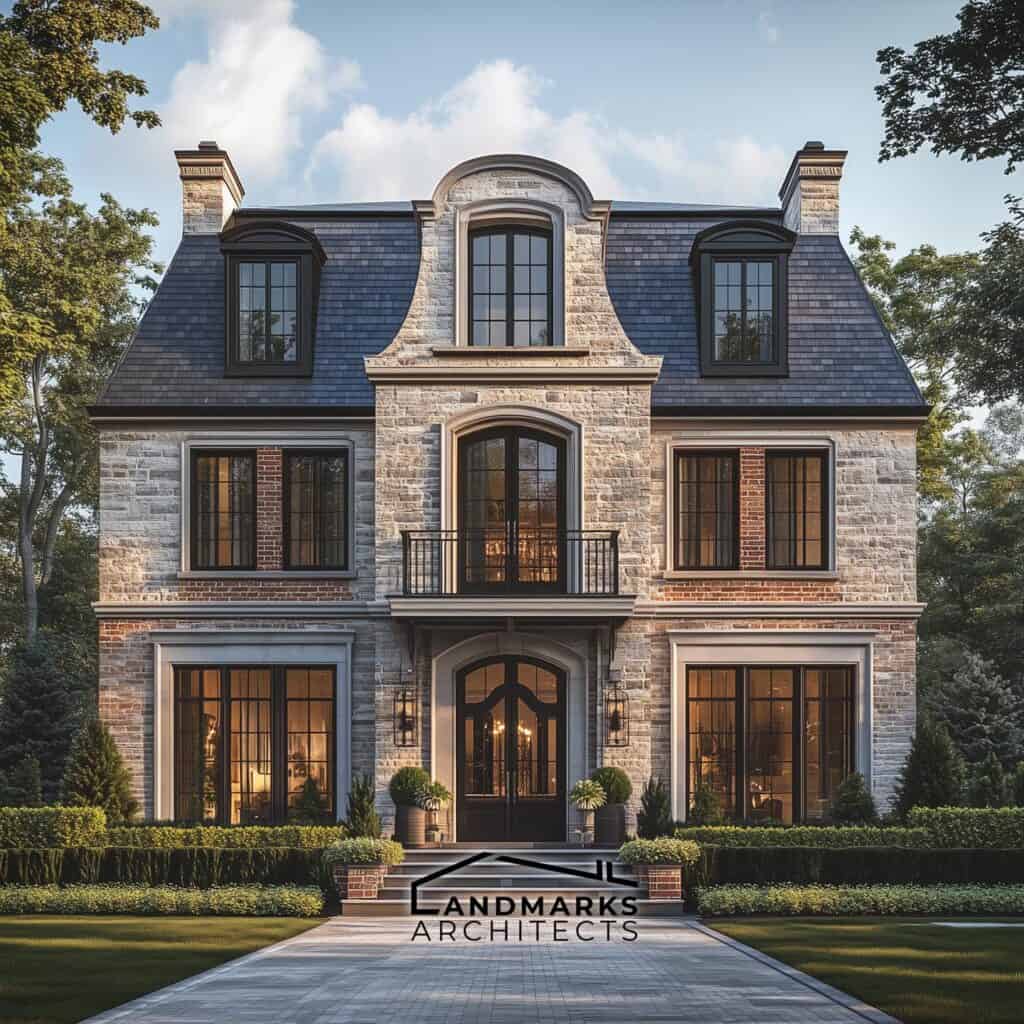
The choice of building materials in modern Georgian architecture is crucial. Predominantly, brick and stone are used to echo traditional designs. These materials not only enhance the visual appeal but also contribute to durability.
Additionally, modern innovations allow for the integration of materials such as glass, which can offer modern touches while maintaining classic aesthetics.
See Also Modern Victorian Architecture
3. Simplicity and Clean Lines
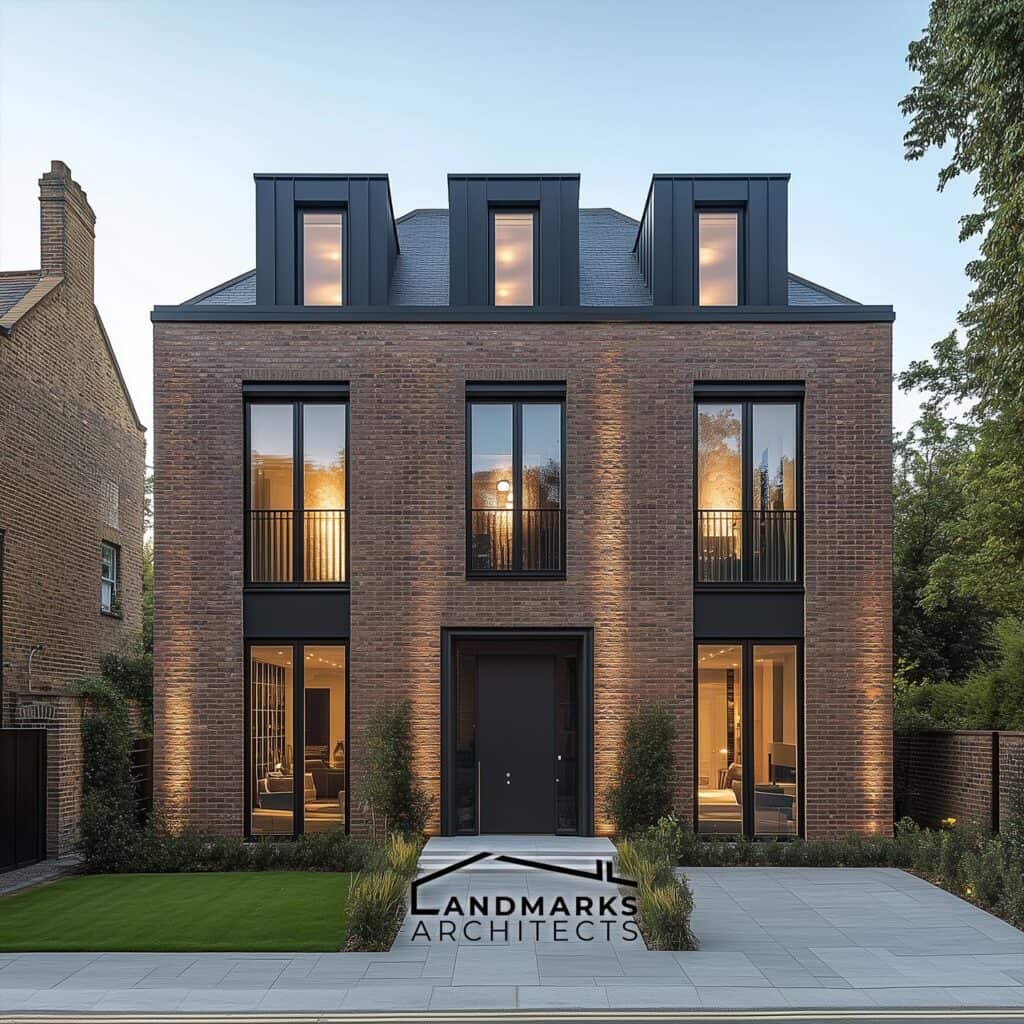
Simplicity characterizes the modern Georgian style, moving away from excessive ornamentation. Clean lines and minimalist designs define facades, promoting elegance without clutter.
This focus on restraint allows for a more contemporary interpretation of Georgian architecture, making the homes feel both timeless and modern.
4. Large Windows
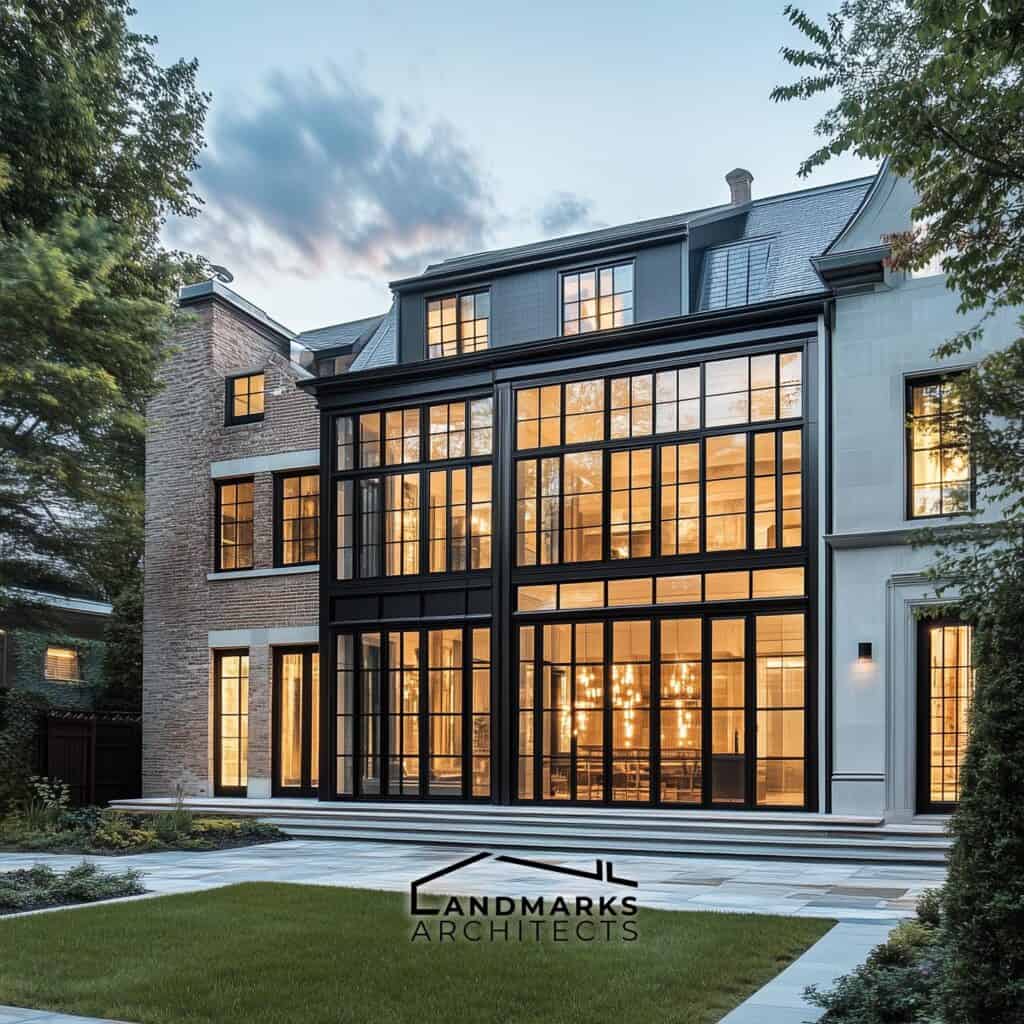
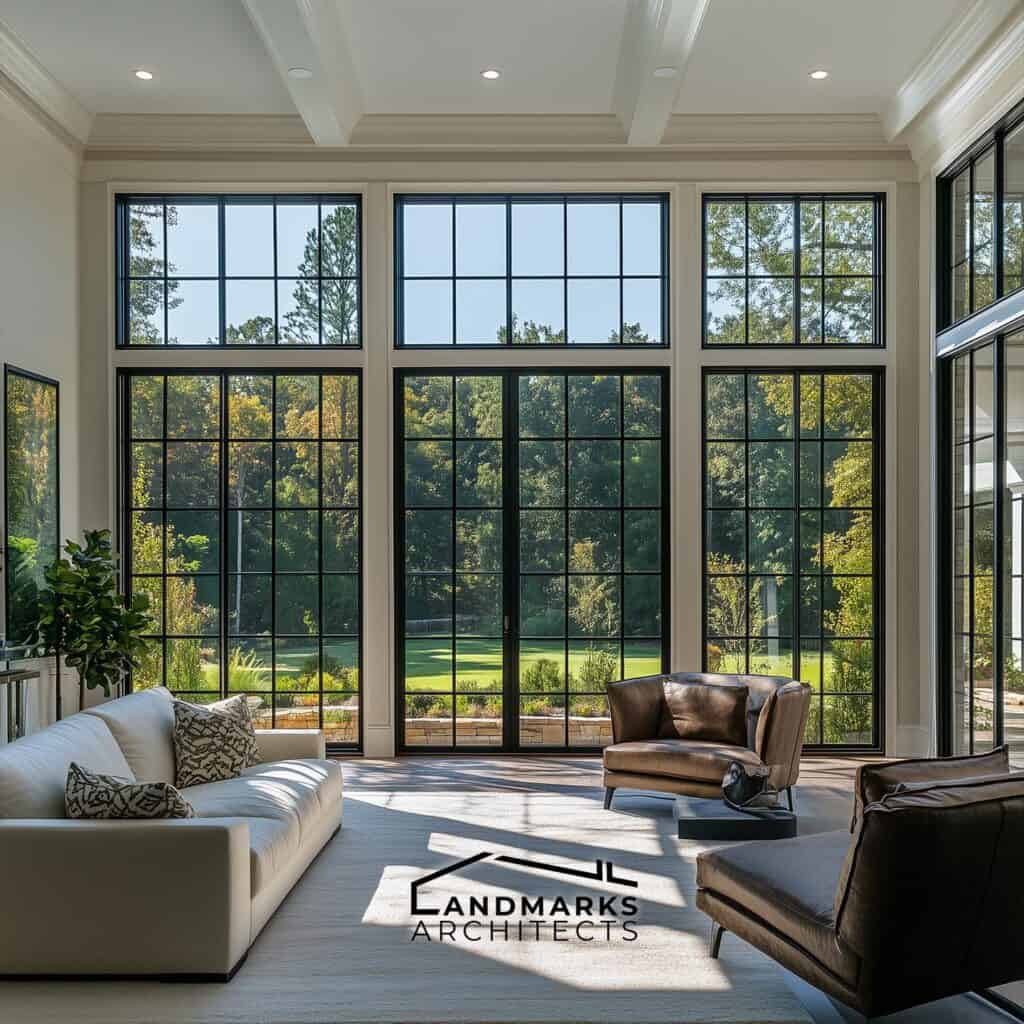
Large windows are a hallmark of modern Georgian homes. They provide ample natural light and connect indoor spaces with the outdoors. Often featuring double-hung styles that echo traditional designs, these windows enhance energy efficiency while adding to the home’s aesthetic charm.
5. Open Floor Plans
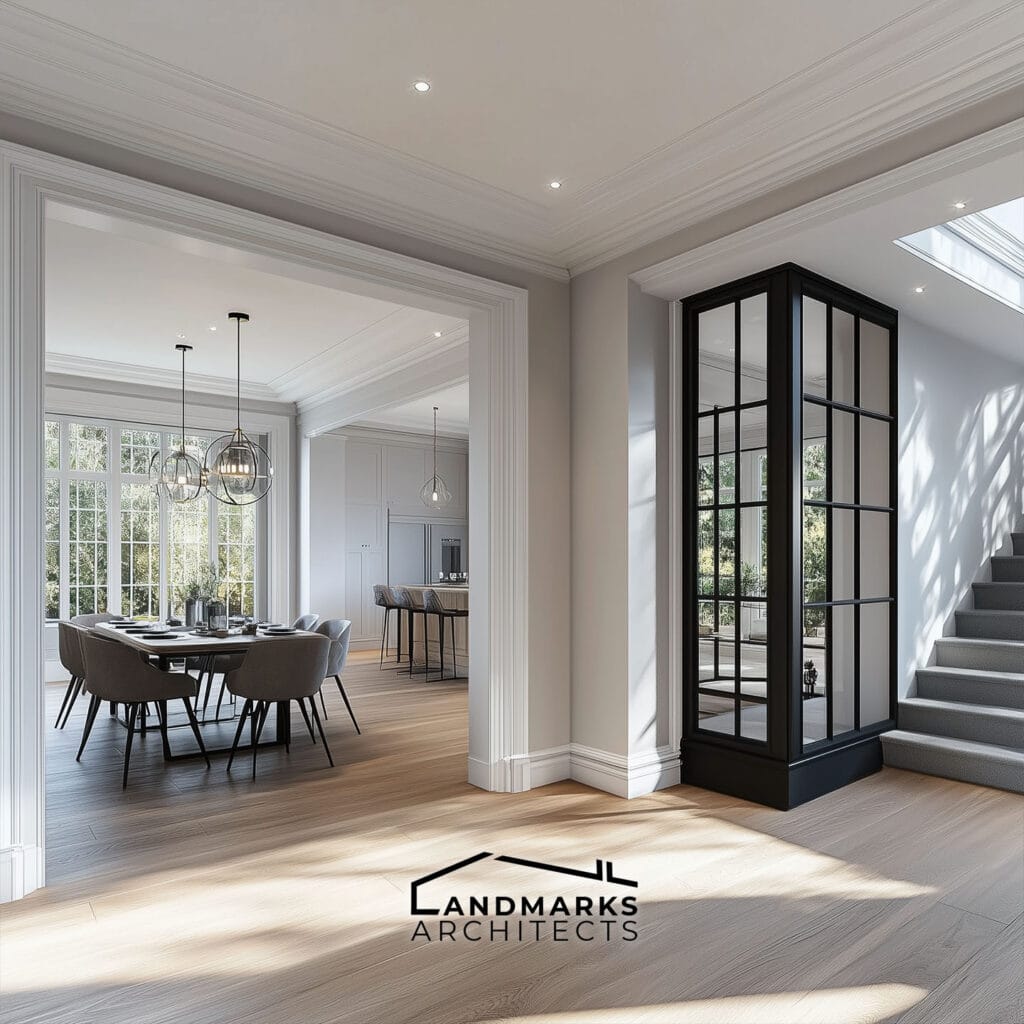
Modern Georgian architecture often features open floor plans, a defining element of modern architectural styles. This design promotes fluidity between spaces such as the dining room and living area, making homes feel more inviting and spacious.
By incorporating this aspect of modern architectural styles, Modern Georgian architecture ensures that families can enjoy communal spaces without sacrificing functionality.
See Also Famous Buildings in UK
6. Functional Spaces
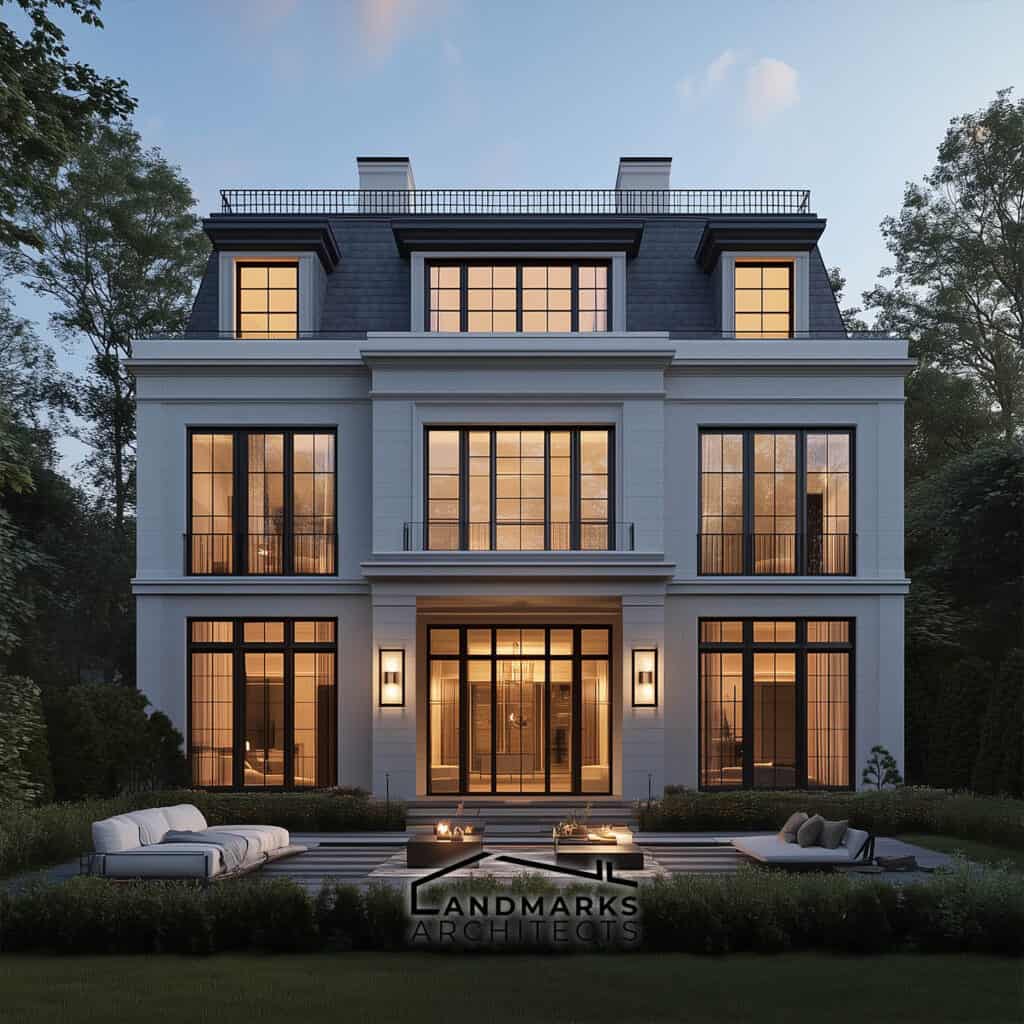
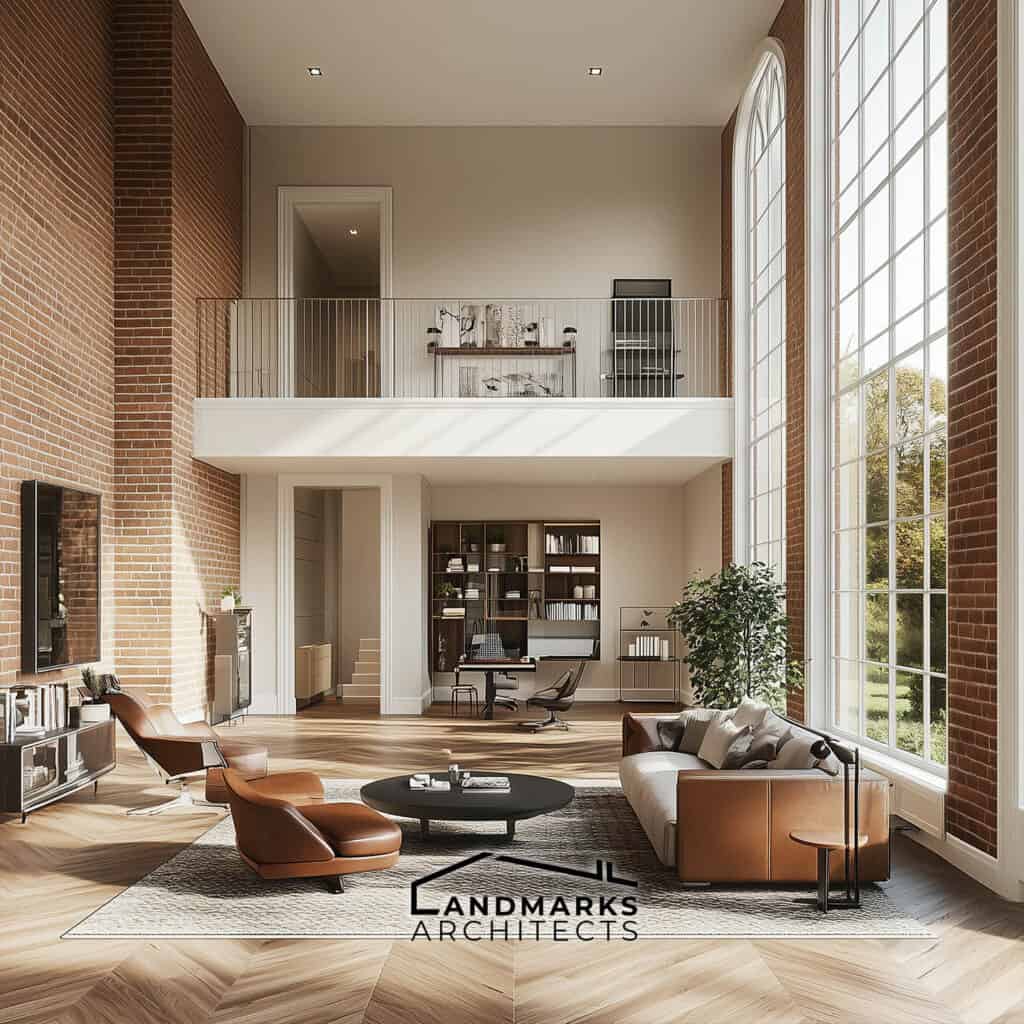
Functional spaces are vital in modern Georgian architecture. Designers prioritize layouts that accommodate contemporary lifestyles, including home offices and versatile living areas. This adaptability aligns with current living demands, catering to both private and communal needs.
7. Sustainable Practices
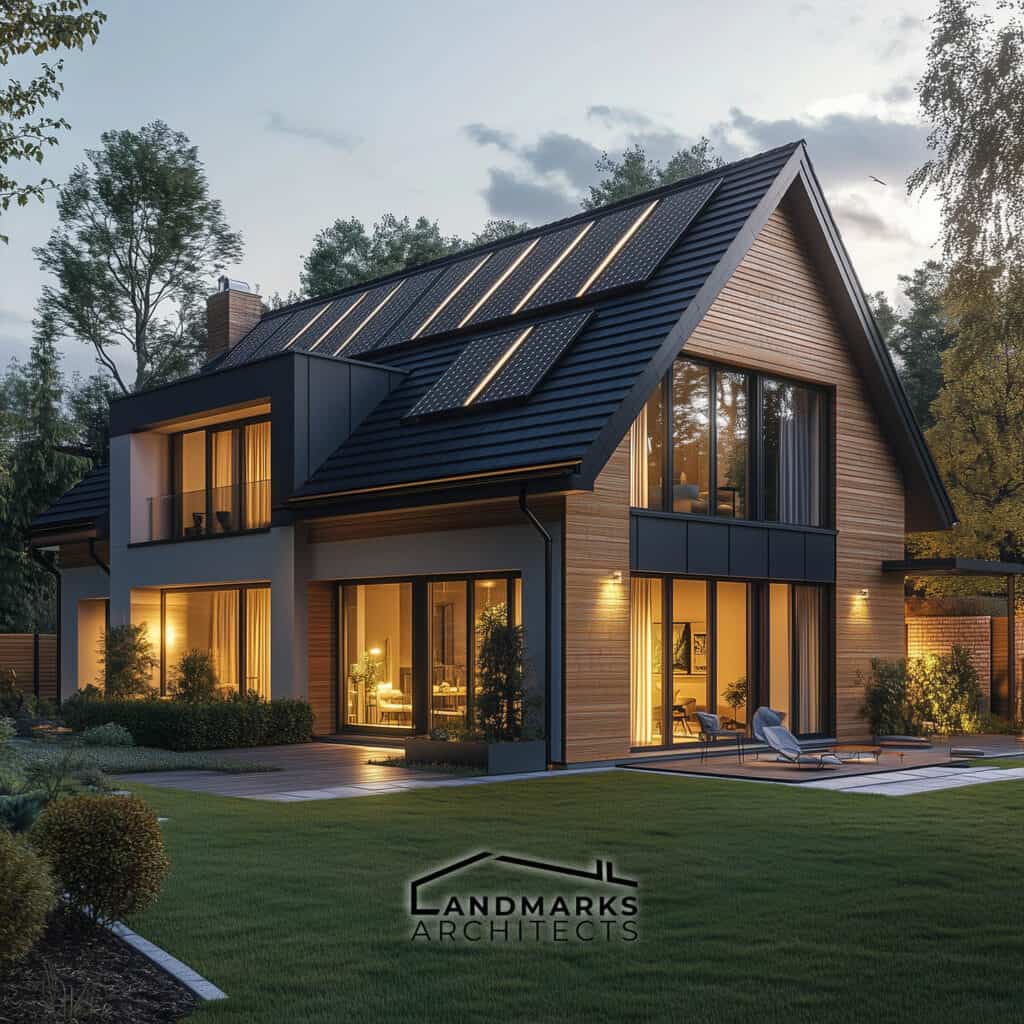
Sustainability is increasingly important in modern Georgian design. Many architects incorporate energy-efficient systems such as geothermal heat pumps and solar panels. The emphasis on sustainability not only meets environmental demands but also provides cost-effective solutions for homeowners.
8. Integration with Landscape
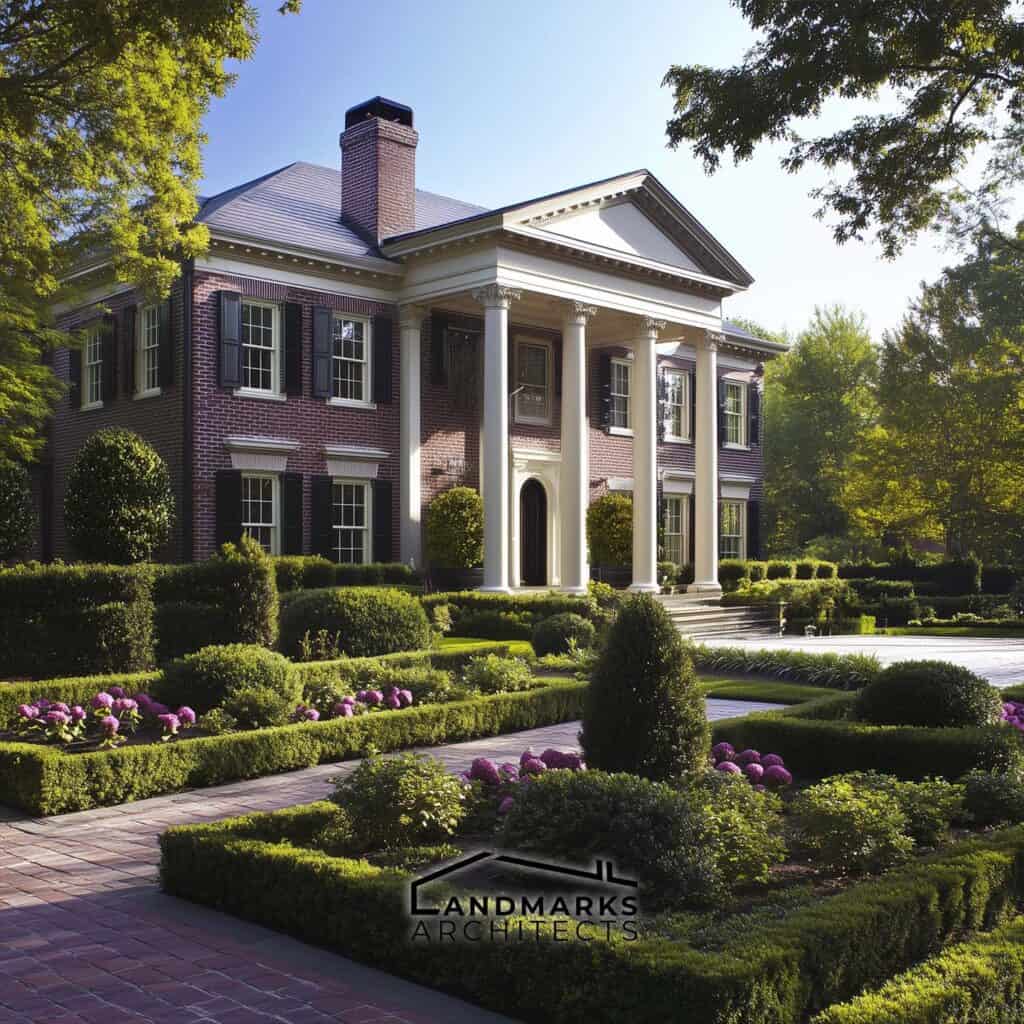
Modern Georgian homes often exhibit a strong integration with their surroundings. Landscaping plays a critical role, with gardens designed to complement the architectural style. This approach fosters harmony between the home and its environment, enhancing the overall aesthetic.
See Also Ancient Irish Architecture
9. Attention to Detail
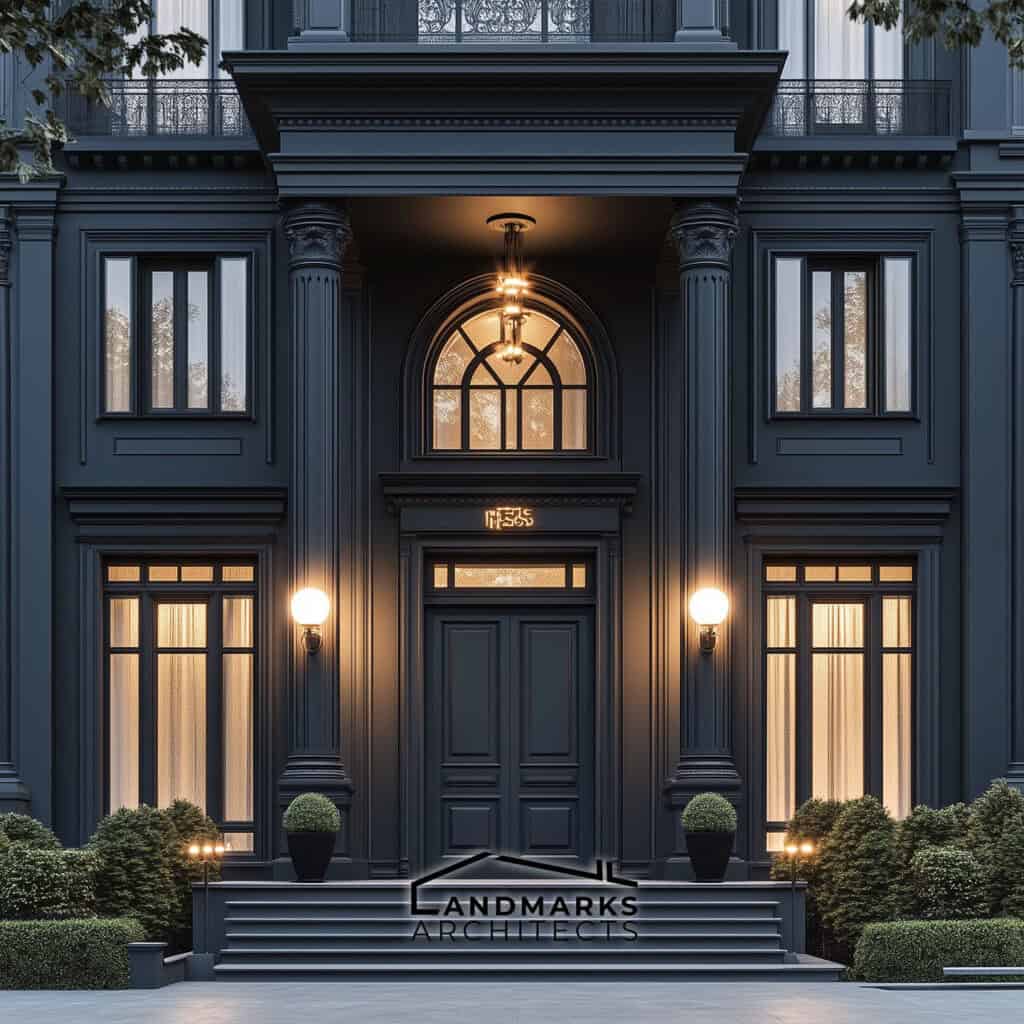
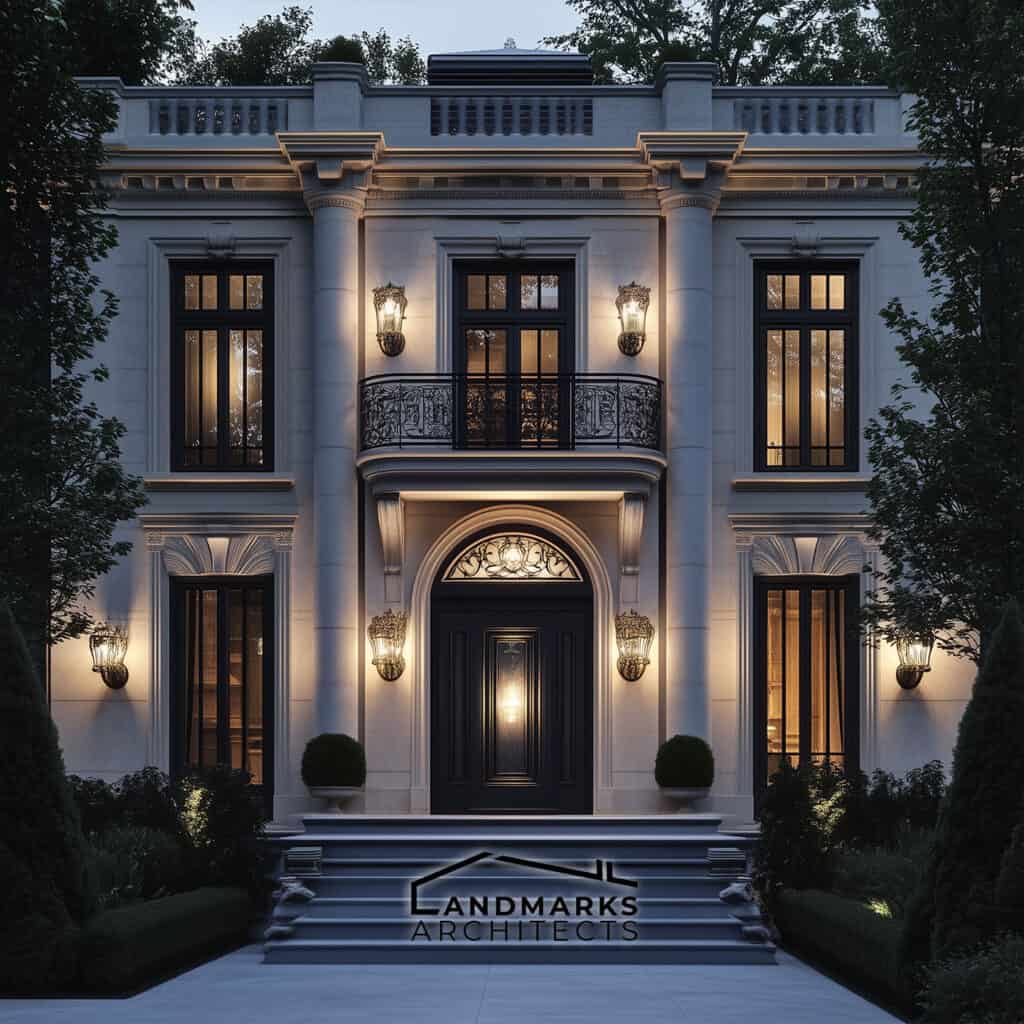
Detailing remains significant in modern Georgian architecture. From ornamental moldings to carefully chosen light fixtures, attention is given to both exterior and interior elements. This focus ensures that each aspect contributes to the historical reverence while aligning with contemporary tastes.
10. Adaptive Use
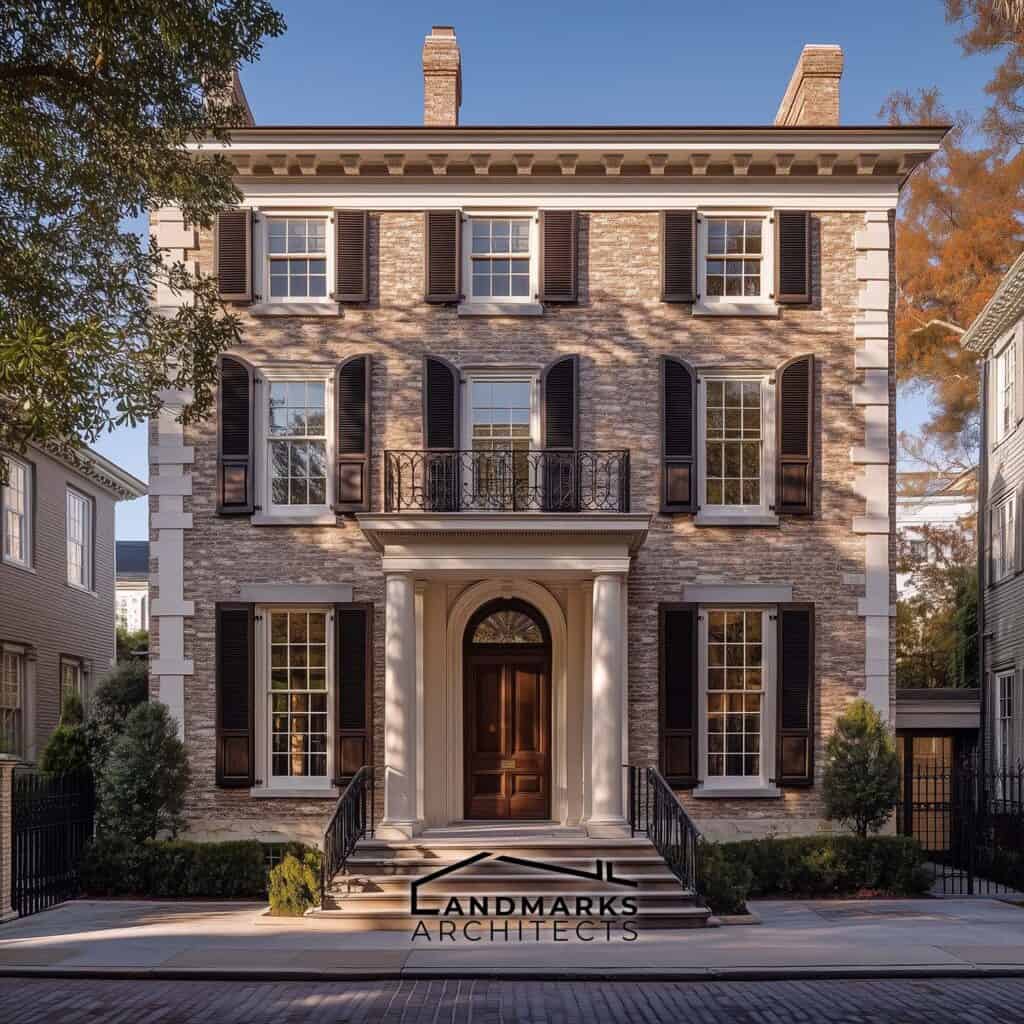
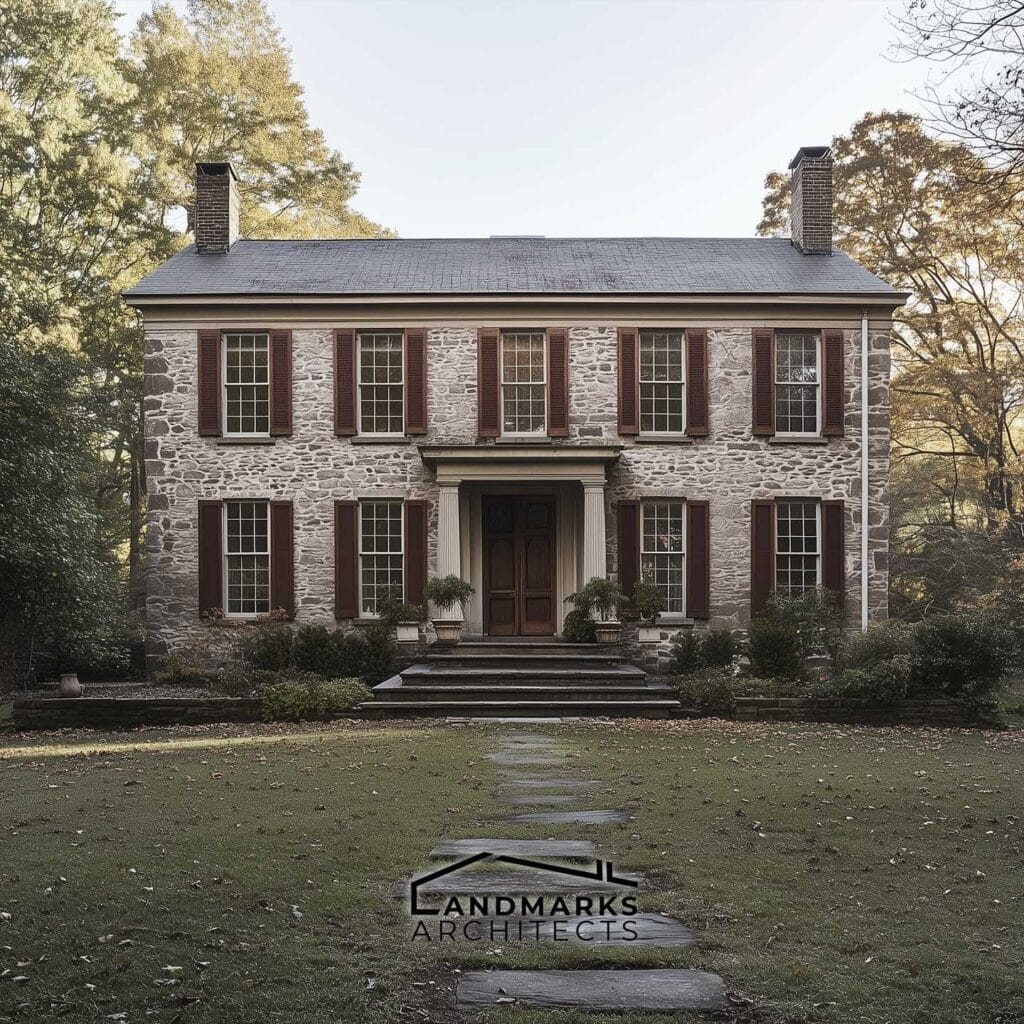
Adaptive use of historic buildings within the Georgian style reflects a commitment to preserving heritage. Homes that have shifted into modern applications retain their classical essence while being repurposed for today’s needs.
This practice not only revitalizes historic architecture but also promotes sustainability by reducing the need for new materials.
See Also Ancient Viking Architecture
Modern Georgian Homes
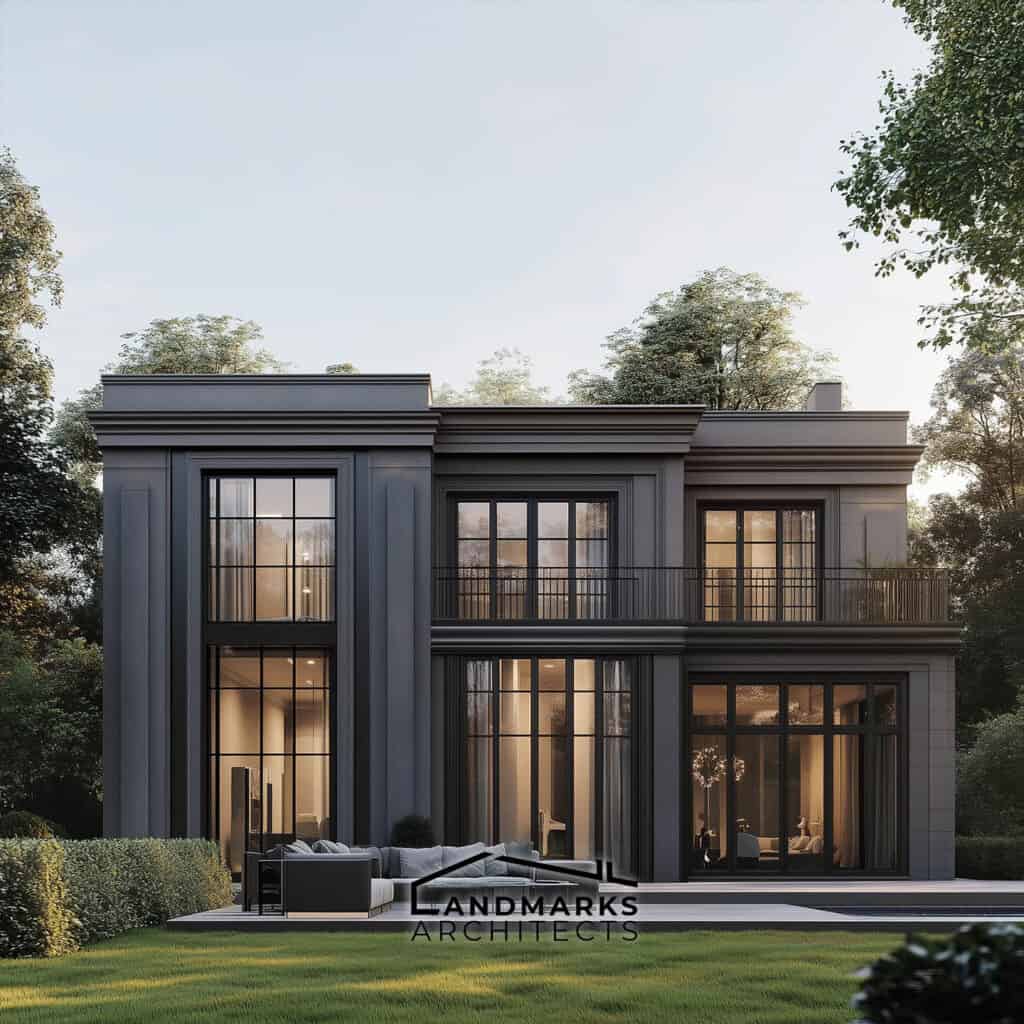
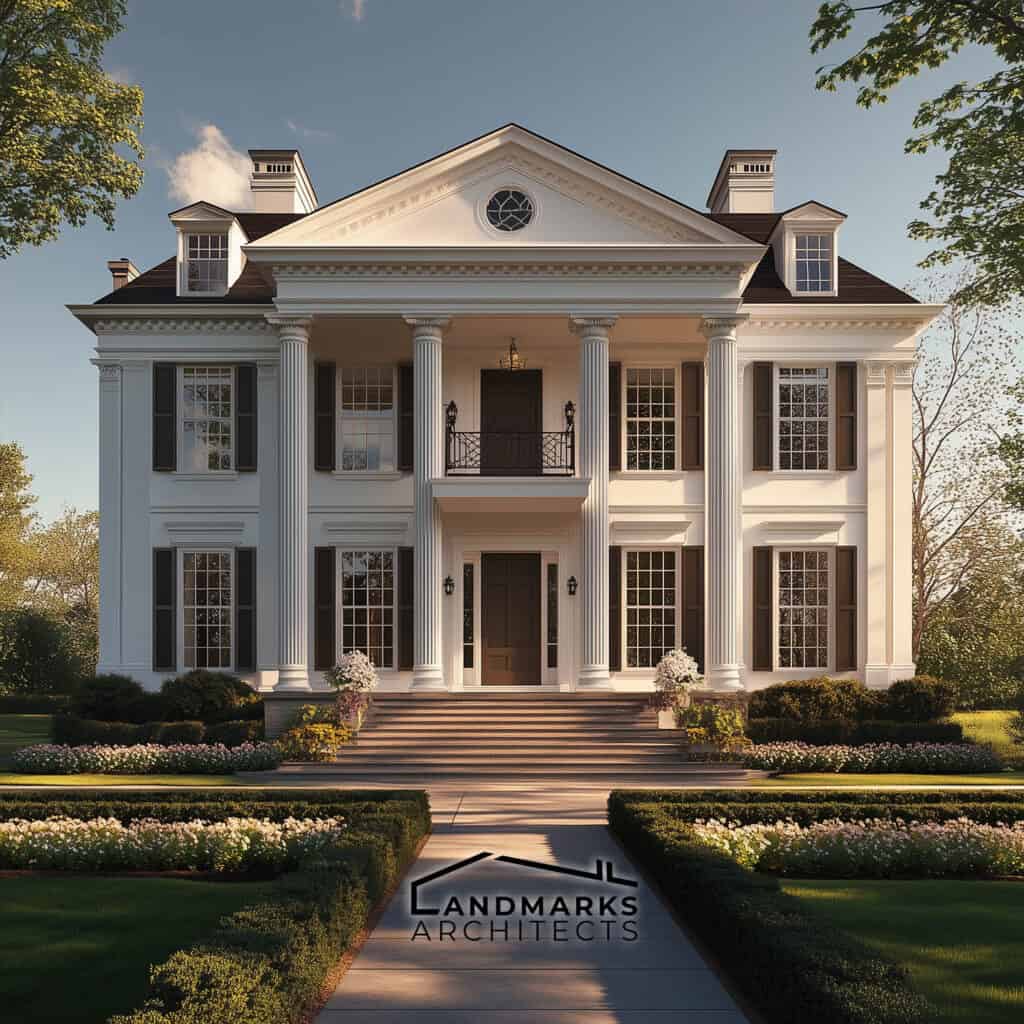
Modern Georgian architecture seamlessly integrates traditional Georgian architectural elements with contemporary design principles.
These modern Georgian homes often feature classically proportioned facades, double-hung windows, and gabled roofs, with designers incorporating Georgian architectural details, such as decorative moldings, to enhance visual appeal.
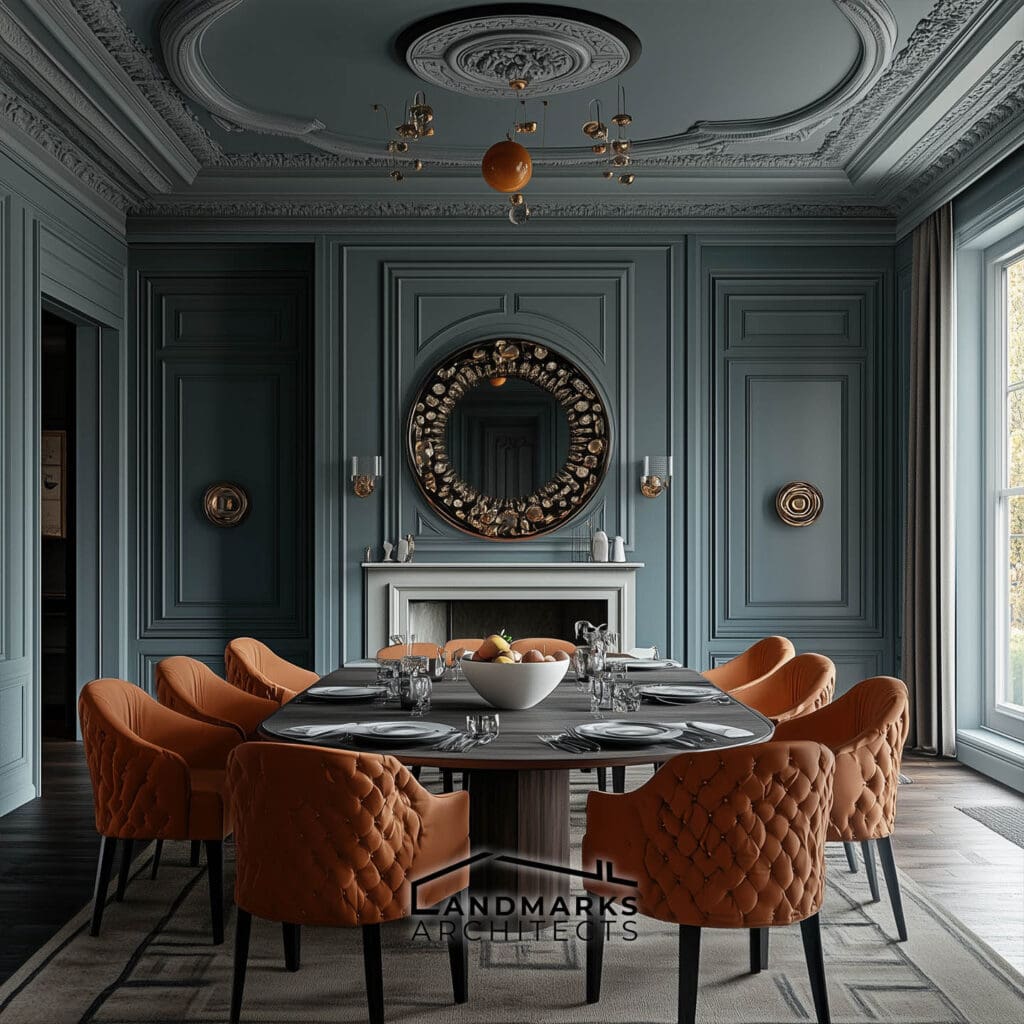
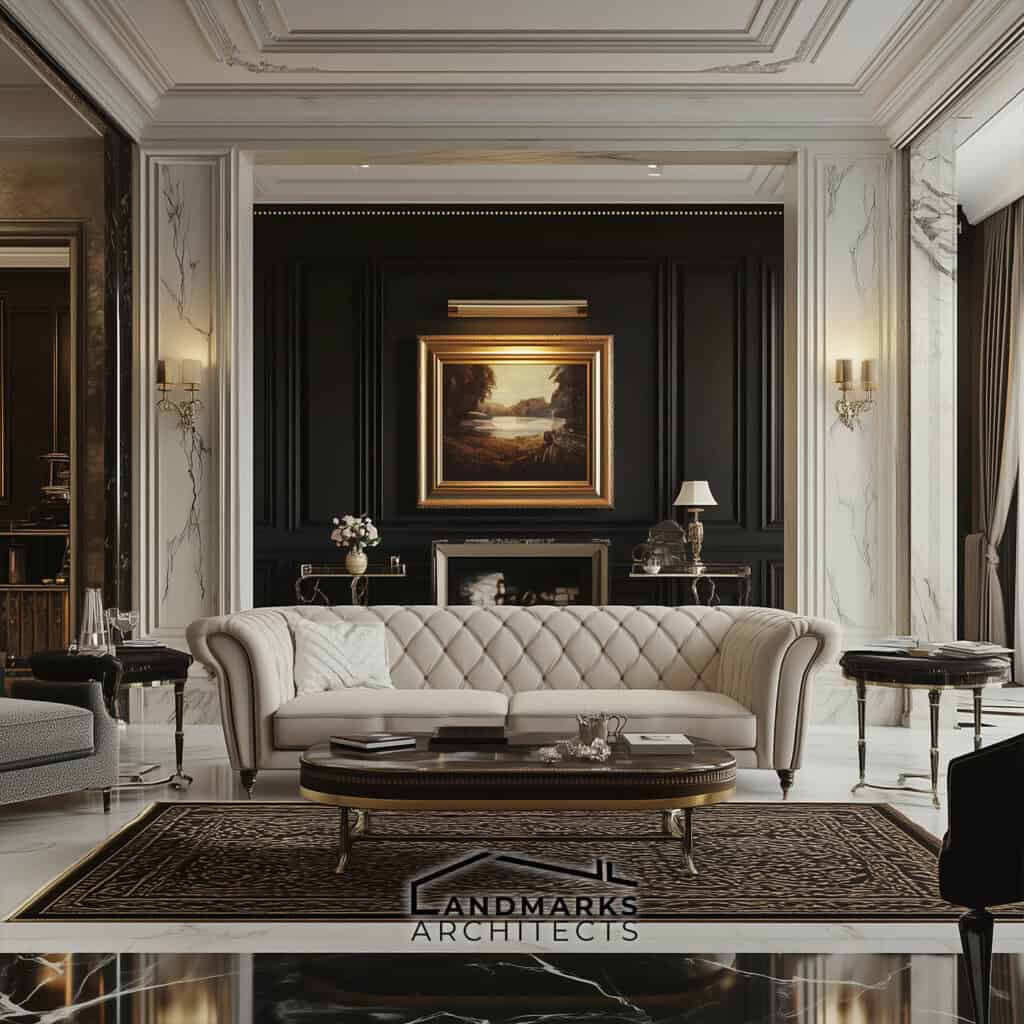
The interior design of Georgian-style homes emphasizes both functionality and elegance. Common areas, including the dining room and drawing room, are designed for comfort and sophistication.
Painted paneling and contrasting colors add depth and character, embodying modern Georgian interior design with a focus on both style and practicality.
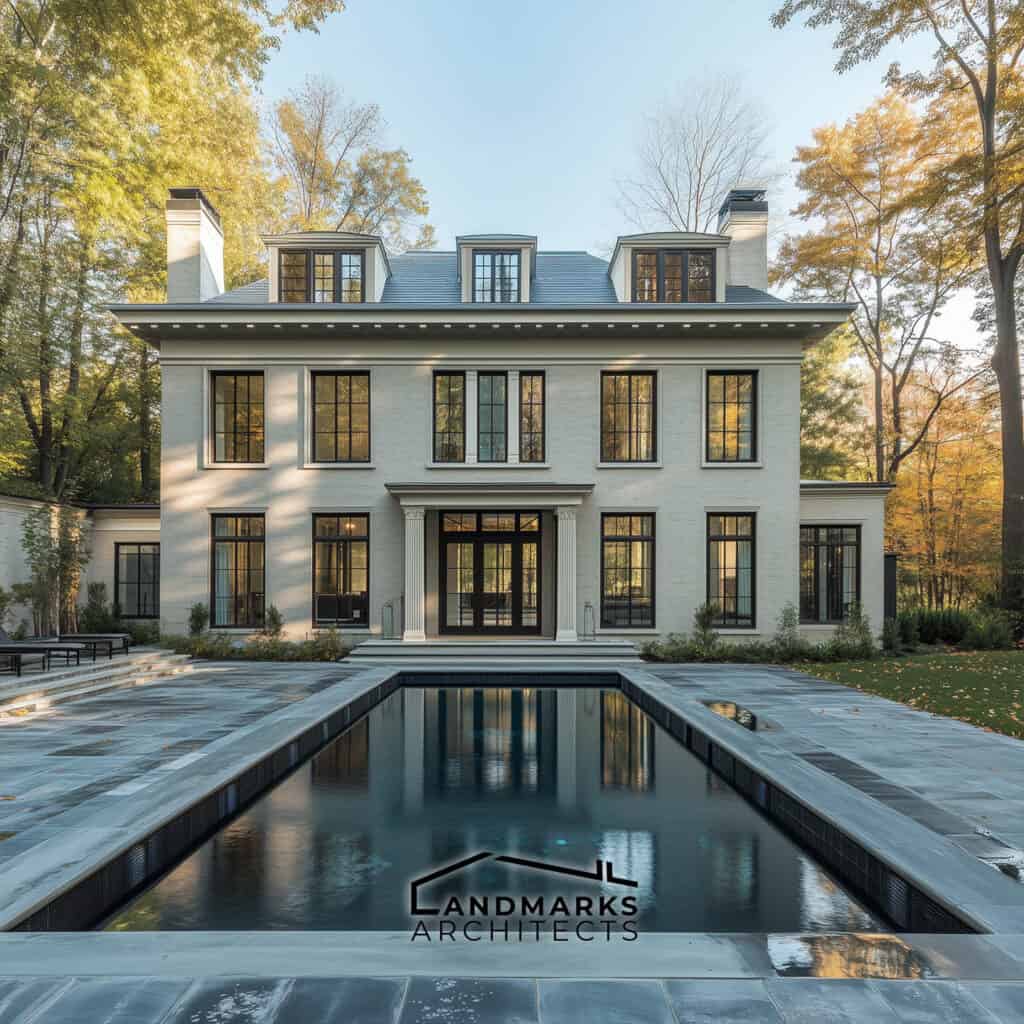
Energy-efficient design practices, such as geothermal systems, are increasingly integrated into modern Georgian homes, meeting today’s demand for sustainability while respecting historical roots.
Key characteristics include open floor plans and functional spaces for modern living, all while showcasing classical detailing.
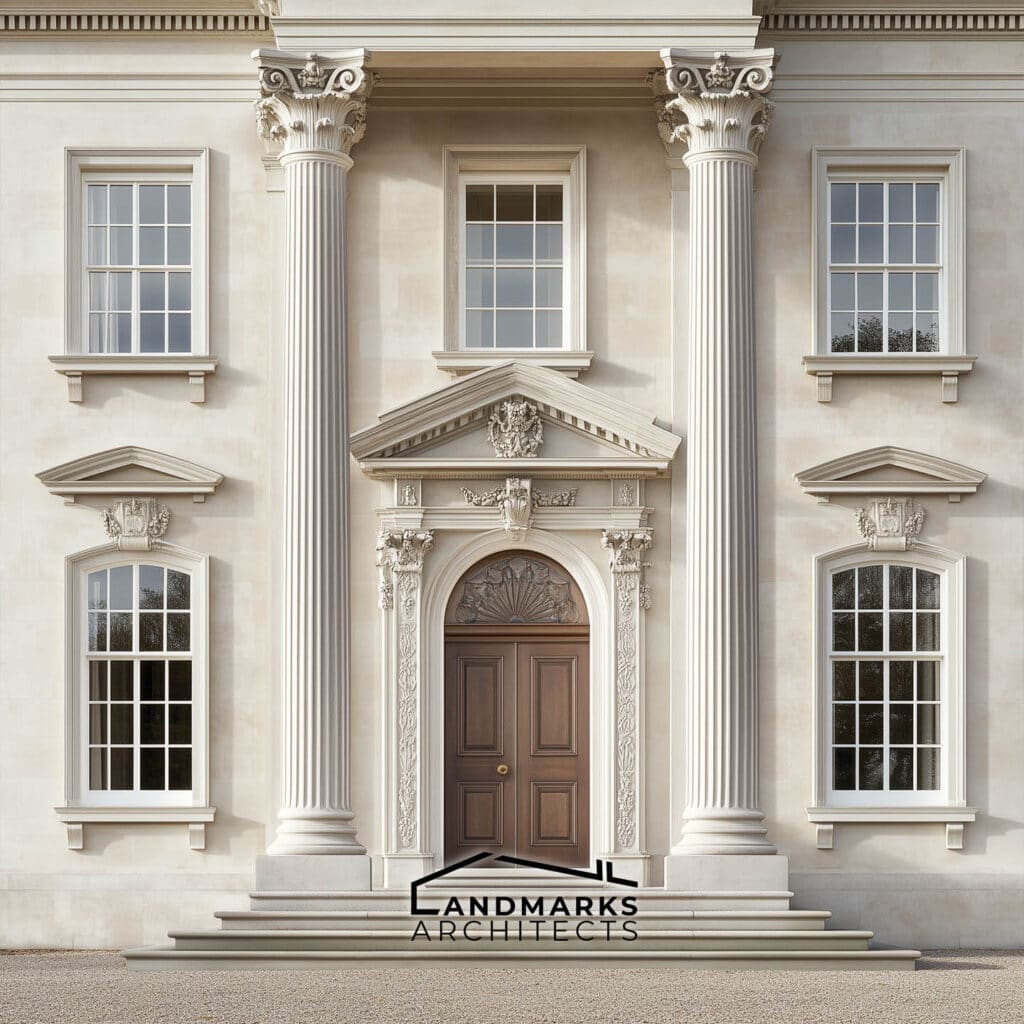
Modern Georgian architecture reflects influences from Roman architecture, ancient classical architecture, and Renaissance principles of Andrea Palladio. This style draws from the Georgian period, including the Regency period and British kings George I through IV.
Georgian homes and Georgian buildings, celebrated for their classical designs, feature elements like Georgian windows and decorative details.
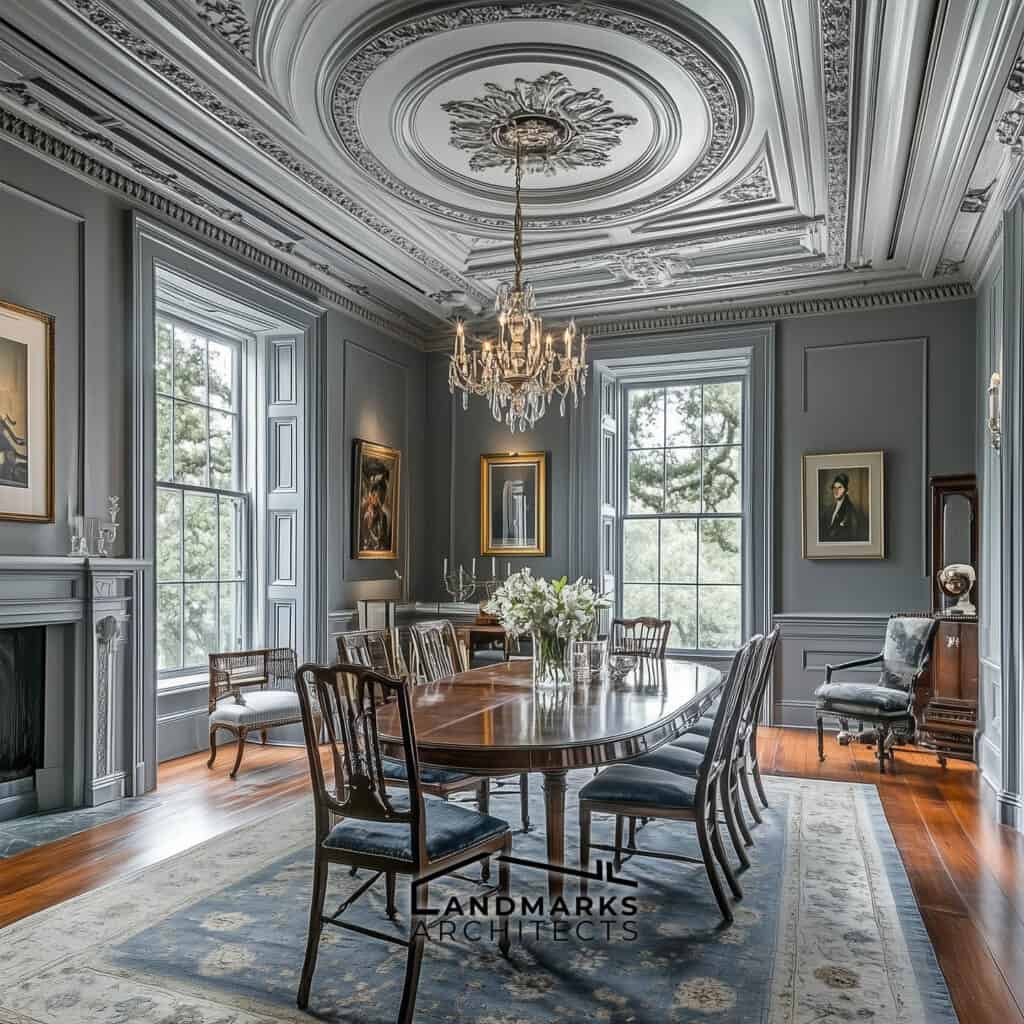
Modern Georgian style maintains the beauty of classical architecture while incorporating contemporary needs, such as home offices and energy efficiency. This approach honors the classical designs of period houses and American Georgian architecture, ensuring that each space, from the dining room to the drawing room, remains functional and elegant.
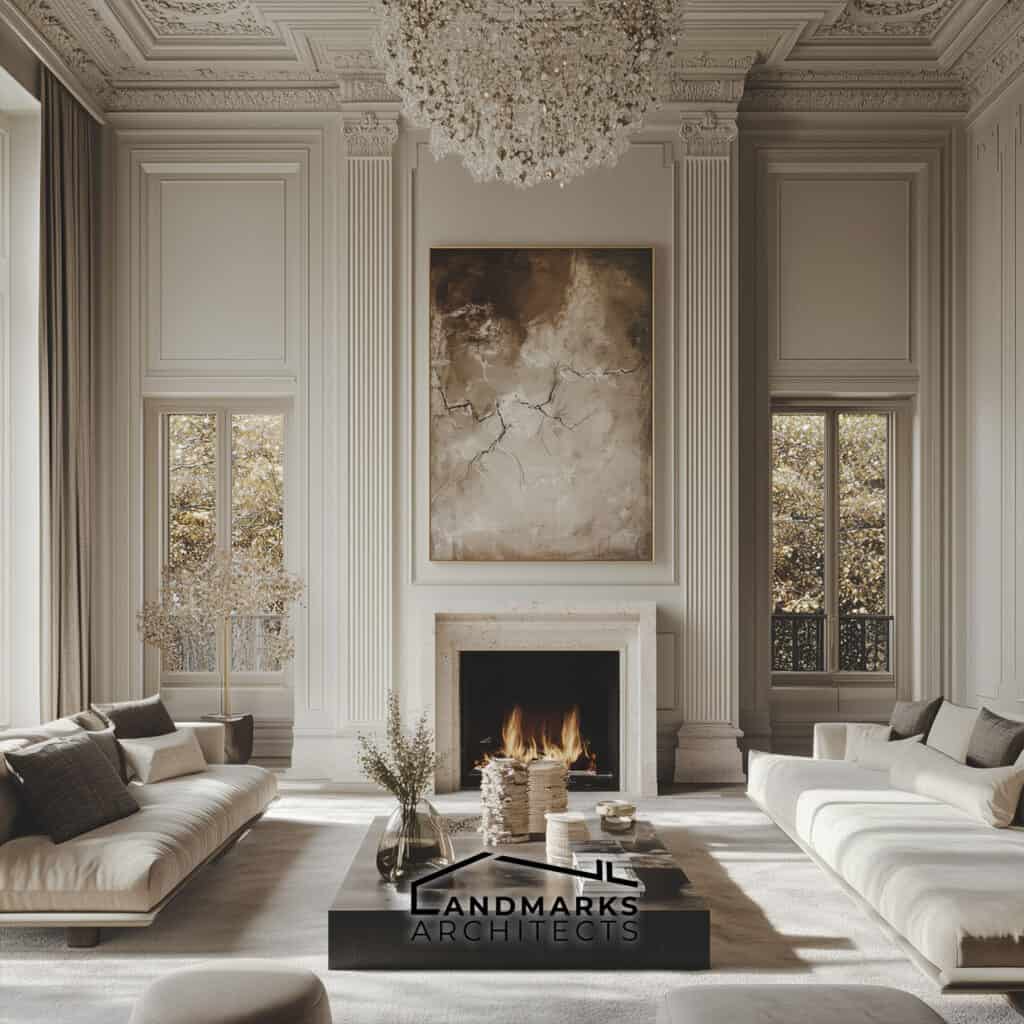
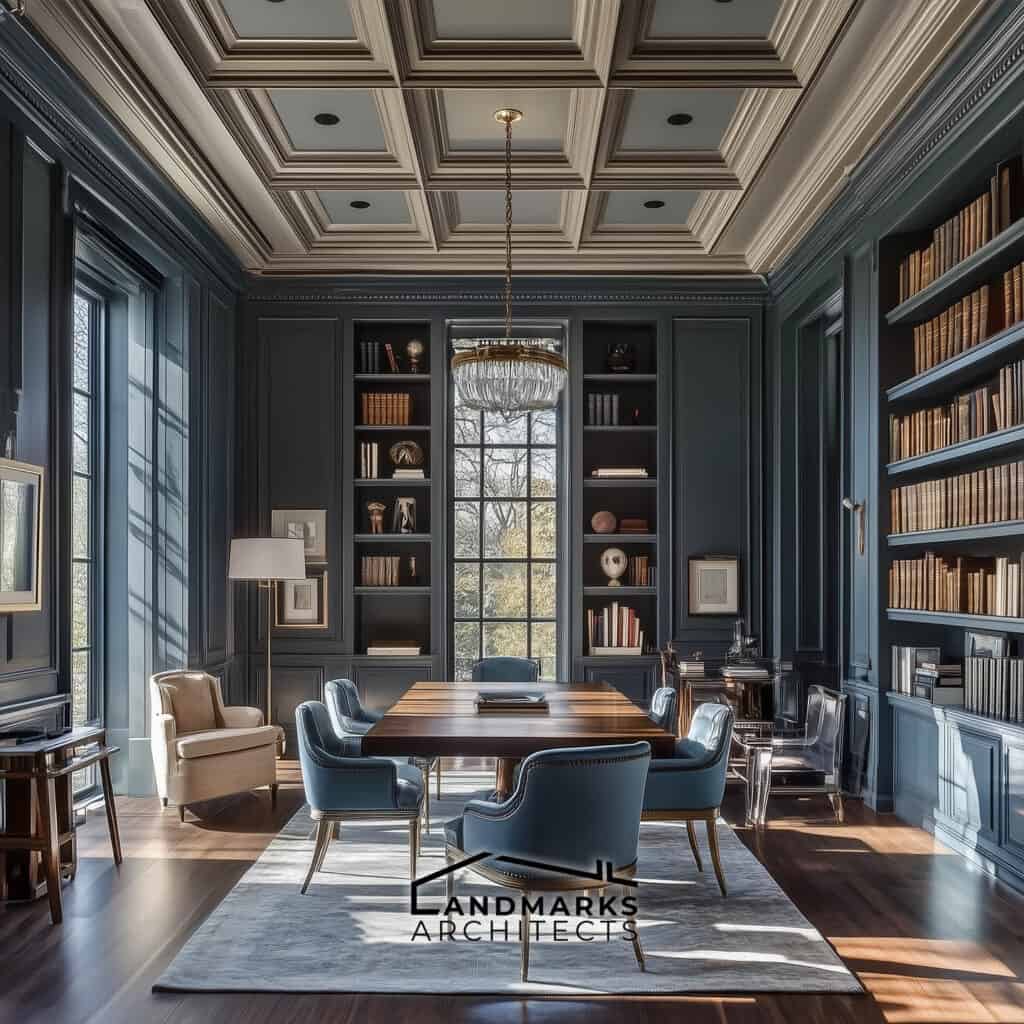
Modern Georgian style maintains the beauty of classical architecture while incorporating contemporary needs, such as home offices and energy efficiency. This approach honors the classical designs of period houses and American Georgian architecture, ensuring that each space, from the dining room to the drawing room, remains functional and elegant.
See Also Architectural Landmarks
Modern Georgian Architecture: A Recap
Modern Georgian architecture masterfully merges classic elegance with contemporary design. Key features include a blend of traditional materials like brick and stone with modern touches such as large windows and open floor plans.
Emphasizing sustainability and functional spaces, this style honors historical roots while adapting to modern needs. The result is a timeless aesthetic that remains both stylish and practical, offering a harmonious fusion of past and present.








